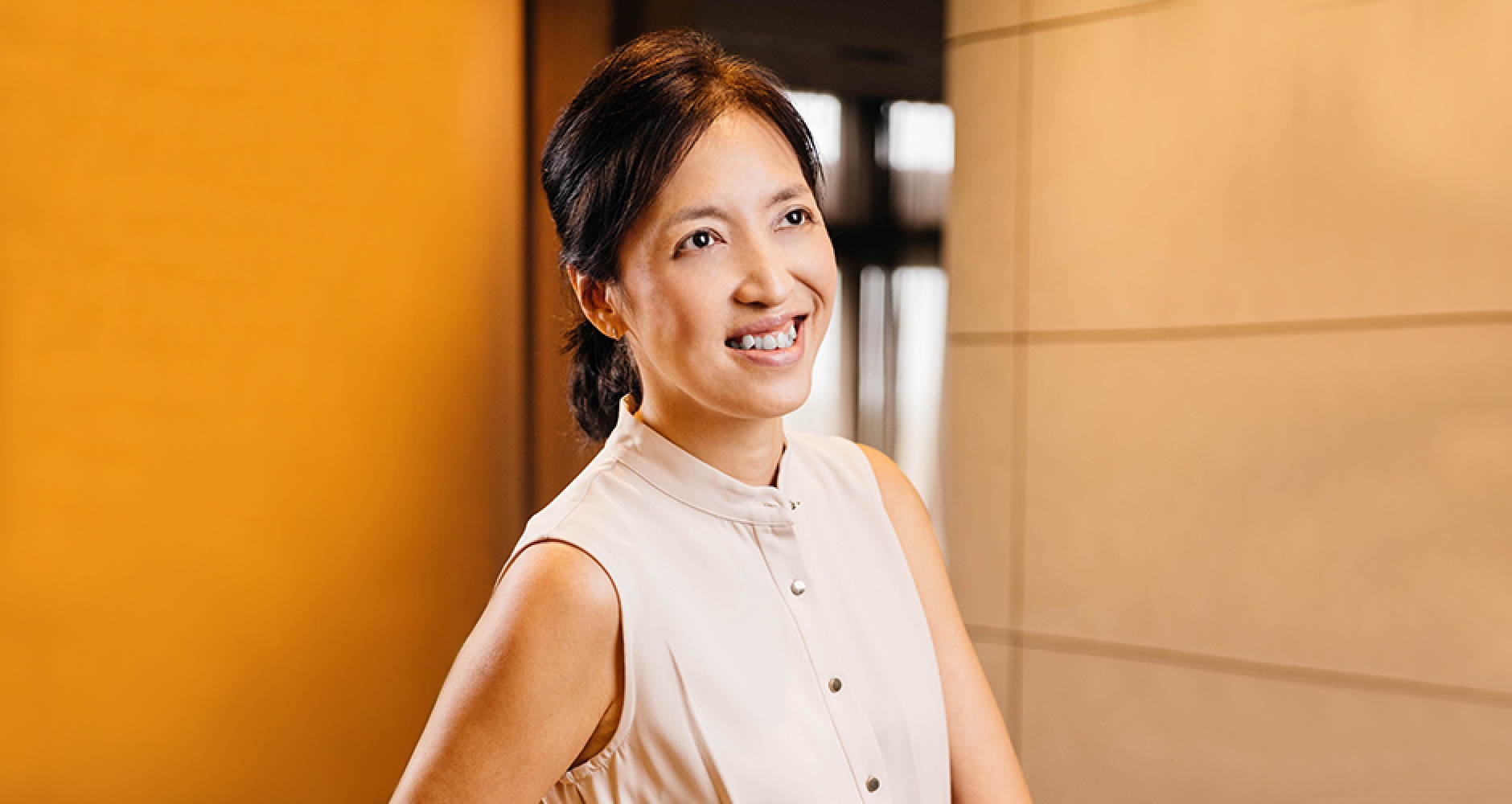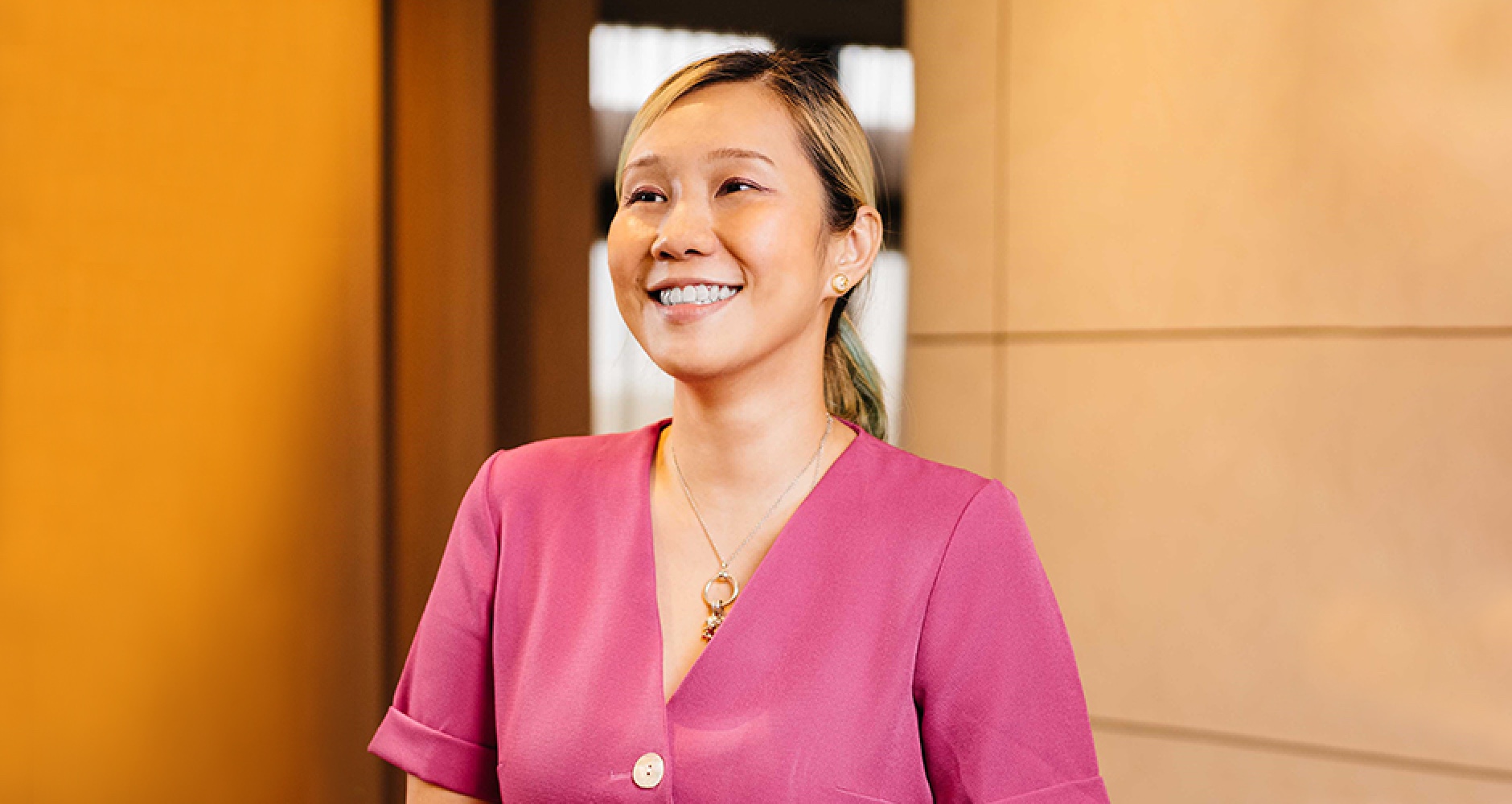When the boss becomes the mentored
When the boss becomes the mentored
When the going gets tough, it is easy to look up, or sit back and wait for directions. The tricky bit, especially in a relationship between two parties who are at different career stages, is speaking one’s mind or being engaged and involved in sorting out challenges before arriving at a common consensus. In this instalment, two Group Audit colleagues tell us how they did this.
Chow Lai Lin, 52, Head of Support Services & Subsidiaries Audit and Investigations, Group Audit, has been with OCBC Bank for 25 years. She is in charge of an audit portfolio comprising support departments of the bank, as well as the securities and property management subsidiaries. She also oversees investigations related to staff fraud, whistle blowing and escalations.
Edwina Goh, 41, Senior Audit Manager, Group Audit, has been with the Bank for nearly a decade. She is responsible for conducting audits and reporting the findings. She works closely with the Bank’s business units to better manage risks and track the implementation of audit recommendations. Lai Lin and Edwina candidly shared their views about reverse mentoring – a serendipitous benefit seniors are reaping, out of several mentoring programmes championed by Group Human Resources.

Chow Lai Lin
What’s your working relationship with Lai Lin like?
Edwina Goh (EG): Lai Lin has been my one and only boss since I joined the Bank almost 10 years ago, apart from one year when I was attached to another team under a structured rotation programme.
After the structured rotation programme, I returned to Lai Lin’s team as her deputy and that’s when our relationship really began to blossom. Although our age gap is about 11 years, we have a real connection. We trust each other and hence, we learn from each other. It really doesn’t matter who is the ‘boss’ in learning. We both remain open-minded and freely share our respective knowledge. Yes, there is a reporting structure — she’s my boss — but we learn from each other!
Can you explain more about Lai Lin’s ‘open door policy’?
EG: Lai Lin’s door is always open so I can see her anytime. If she’s not rushing to complete a piece of work, she always makes time to speak with me, and it works both ways. She often comes out to ask for my views, or the views of other team members, before deciding on certain matters.
If she has something urgent to work on, she’ll politely decline and immediately schedule an alternative time to meet. She never outrightly rejects or imposes any ‘boss versus subordinate’ boundaries. She’s approachable and, as a result, I’m comfortable approaching her.
As a boss, how do you create a ‘safe space’ for your subordinates to share their views?
Chow Lai Lin (CLL): I truly appreciate having Edwina on my team; besides learning about the digital scene from her, she also readily shares her views – insights that I may overlook in my role as a supervisor.
With Edwina stepping up and deputising my role in managing the team’s audit portfolio, we’ve been working closely together to overcome numerous challenges as the team embarked on various new initiatives. Yes, I’m her boss, but Edwina’s more digitally inclined than I am. She has been great in guiding me along, particularly in the ongoing data analytics initiatives where the team works on building the dashboards for our AML / CFT audits. She has really compressed my learning curve!
Edwina doesn’t only say what she thinks I want to hear. Instead, she is frank, open, and speaks her mind; yet she does it in a way that is respectful and not judgemental. This is important because being judgemental is a barrier to trust. While Edwina speaks her mind frankly, she trusts me as a supervisor, and that’s what makes our relationship precious.
For example, in discussions where I share my ideas, some may quietly disagree with me simply because I am the boss. However, Edwina has the confidence to speak her mind even though it may be contrary to my views. She does so professionally and with good intent because she cares about our department’s performance. I respect that quality about her, as well as her points of view.
Sometimes I look at Edwina and think to myself, ‘that was me a decade ago!’. Looking back, I wished I had a supervisor who provided a ‘safe space’ for me to voice my views without any fear of judgement. Now, as a boss, I try to create a working environment where my subordinates feel comfortable speaking their minds openly. In some ways, Edwina is a mirror for me to look into.
What’s your advice for leaders?
CLL: As leaders, we must constantly remind ourselves that we will never ‘arrive’. We must train ourselves to have a growth mindset and be willing to adapt and to roll with the changes — these changes do come rapidly! We have much to learn from our younger colleagues as they are born into a world that the older ones are learning to adapt to. Listen to them. Develop empathy. We must put ourselves in their shoes and ask ourselves: ‘what do they need and how can I enable them to succeed?’
What’s your advice to the younger colleagues?
CLL: Be willing to speak up. Clarify, be open, share, work hard and strive to grow. The seniors may not know some of the things that you know, but we do know many things from our experience. Grab hold of all opportunities to learn. Be hungry and seek feedback from the seniors because they know things that you don’t know. That intersection between experience and fresh thinking is where excellence happens, aim to get there!
Young people like to communicate extensively, but I’ll advise my younger colleagues to be judicious and exercise prudence in publicly sharing, especially on social media. The digital footprint lasts a long time, so consider each word or image you put out there.

Edwina Goh
What advice do you have for your peers?
EG: Speak up, but consider what you are going to say, and don’t shoot from the hip. By being prepared, you will not only make more sense, but you’ll also have more courage to speak. Show respect when disagreeing. Regardless of which party is right or wrong, it is important to always be professional and respectful.
In audit, conflict is inevitable, so don’t shy away from them. It is important to resolve conflicts by having open and respectful discussions with your boss rather than resorting to gossiping, as this will only create office politics.
If you could give any piece of advice to supervisors, what would it be?
EG: If I could give any piece of advice to supervisors, it would be to remove boundaries as much as possible. Encourage feedback. Even if it is a bad idea, there could be a good idea aching to come out of it. Thus, it is important for supervisors to be open, approachable, and acknowledge that they too can learn from their subordinates. Through this, it is more likely that subordinates will have the courage to speak openly.

